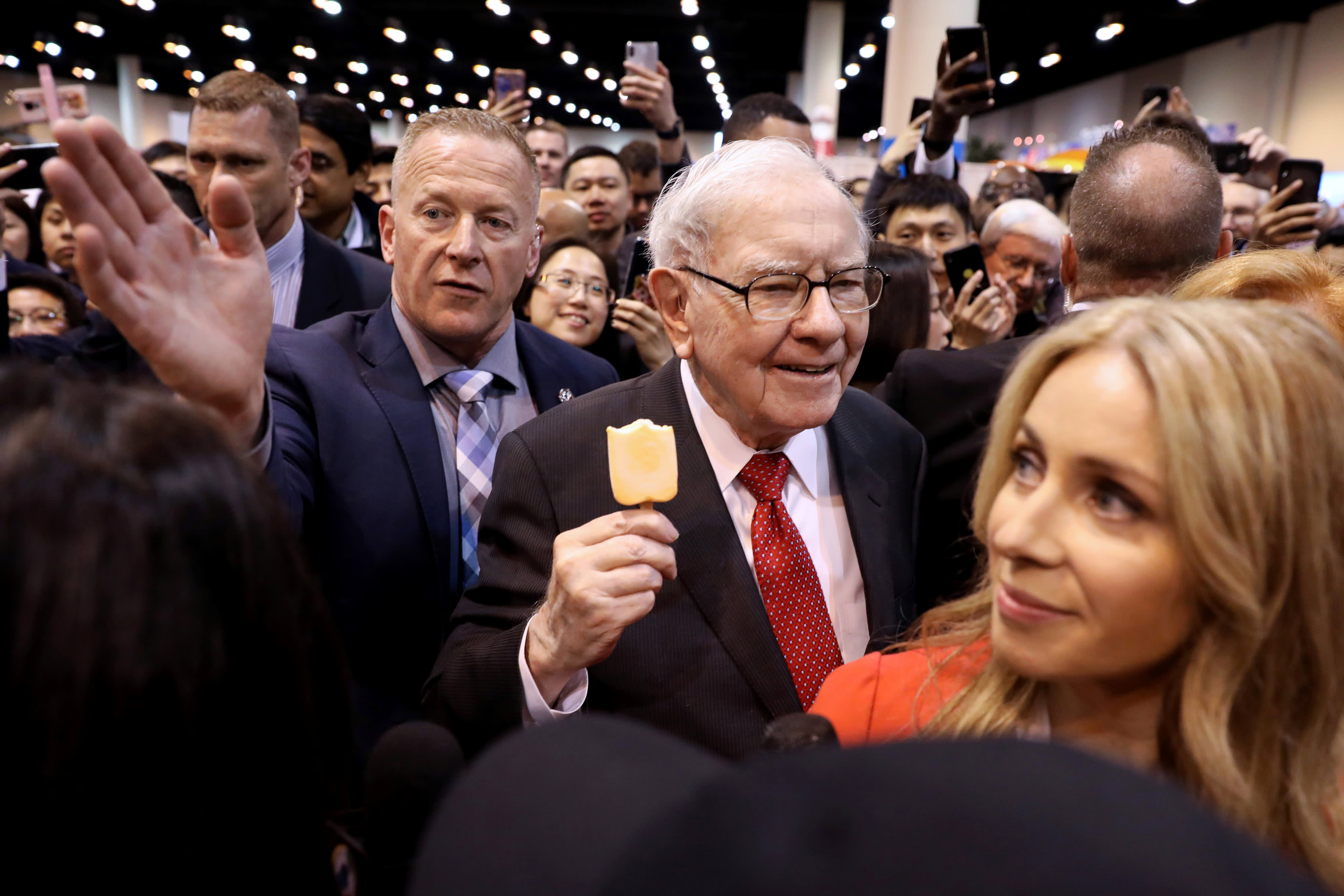
Warren Buffett walks through the exhibit hall as shareholders gather to hear from the billionaire investor at Berkshire Hathaway’s annual meeting in 2019. A new book lays out the reasons why Buffett’s method of market success is increasingly hard to replicate, even for Buffett himself.
Scott Morgan | Reuters
If you’re hoping that you’ll be the next Warren Buffett, I have some bad news for you.
If you’re hoping to pay an investment professional to outperform the market to the same extent that Buffett did, I’ve got more bad news.
Buffett, CEO of Berkshire Hathaway and one of the greatest investors of all time, was a very rare bird. Active managers — i.e. professional stock pickers — are constantly claiming that they can outperform market benchmarks like the S&P 500, but they almost never do, particularly over periods of time that go beyond three or more years.
That’s the conclusion of “The Incredible Shrinking Alpha,” a new book by Larry Swedroe, chief research officer for Buckingham Wealth Partners, and Andrew Berkin, head of research at Bridgeway Capital.
How bad is it? S&P Dow Jones Indices has studied active managers for many years. Last year, they noted that after 10 years, 85% of large fund managers underperform their benchmark (usually the S&P 500), and after 15 years, that underperformance reaches 92% of managers.
That is a very bad record!
Why is it so hard to beat the market? Swedroe cites several reasons:
- The market is pretty efficient at pricing stocks, so it’s hard for an average investor to gain any real insight that would all them to outperform for any length of time.
- The pool of money invested in the stock market has grown dramatically in the past 50 or so years. More money competing to outperform the market means it is harder to do so.
- There’s a lot less “dumb money” around. Fifty years ago, much of the market consisted of one retail trader trading against another retail trader. Today, most of the market consists of professional investors who are highly efficient. The small pool of retail investors — Wall Street calls them (i.e. you) “dumb money” — has a very hard time competing against those professionals.
More from Invest in You:
No money? No expertise? Ditch your excuses and start investing anyway
Here’s a scientific way to make better investment decisions
Millennials look to make a social impact with their investing dollar, study finds
But what about the Warren Buffetts and Peter Lynch’s (the famed Fidelity Magellan Fund manager) of the world? Don’t they outperform the markets?
Swedroe acknowledges that a small (very small) group of legendary investors do outperform, but he points out several factors that should discourage others from thinking that performance can be replicated:
- Buffett and his school discovered decades ago that stocks with certain characteristics tend to do better over time. He buys companies that are cheap, and are very high quality, with high quality defined as having a low debt to equity ratio, low earnings volatility, and high margins.
- Today, this type of investing is known as “value investing.” However, the whole world now knows about this style of investing, and it’s easy to replicate what Buffett is doing by buying cheap mutual funds or ETFs that mimic that investment style, or other investment styles that people think can outperform the market, like momentum, quality, small caps, etc. You don’t have to pay an expensive fund manager to get those strategies.
- Warren Buffett himself has had trouble outperforming in the last 15 years, as it has become easier to replicate his investment style.
What should the average investor do?
So what’s an average investor to do? Swedroe says the first thing to do is to decide what your risk tolerance is — the higher the risk, the higher a percentage of stocks to bonds you can own. For example, many fund managers recommend the traditional 60/40 split — 60% in stocks, 40% in bonds. But if you can tolerate higher risk, there’s no reason you couldn’t own a higher percentage of stocks, particularly if you are younger.
After that, Swedroe says that most investors are better served owning low-cost index funds, like those that track the S&P 500 and the Russell 2000, and not bothering to pay an active manager a higher fee to pick stocks or funds.
And keep it simple: Swedroe says you don’t need to own 50 mutual funds or ETFs to have a broad portfolio.
How many would it take? He says a broad portfolio can be constructed with as few as three funds:
- A broad U.S. stock fund, like the Vanguard Total Stock Market ETF.
- A broad international fund, like the Vanguard Total International ETF or Schwab International Equity ETF.
- A broad bond fund, like Vanguard Total Bond Market ETF (BND) or iShares US Aggregate Bond ETF (AGG), or just certificates of deposit.
Whatever you do, Swedroe says, keep a consistent investment plan, and don’t panic when the market goes down.
SIGN UP: Money 101 is an 8-week learning course to financial freedom, delivered weekly to your inbox.
CHECK OUT: My side hustles bring in $5,000 a month: Here’s my best advice for getting started via Grow with Acorns+CNBC.
Disclosure: NBCUniversal and Comcast Ventures are investors in Acorns.




